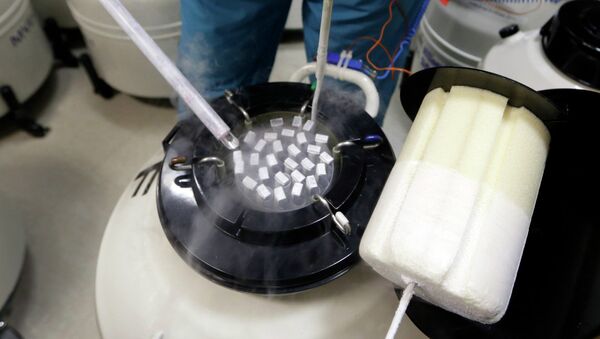The study, presented at the European Society of Human Reproduction and Embryology conference in Austria, suggests that there is a “possibility of creating a human sperm bank outside of Earth”. To confirm this, researchers exposed the frozen material from 10 healthy donors to microgravity with a small aerobatic aircraft and then analysed its fertility, studying concentration, motility and DNA fragmentation. As it turned out, “space sperm” was not significantly different from the samples that remained on Earth.
One of the researchers, Montserrat Boada from Dexeus Women’s Health in Barcelona, noted that while earlier studies suggested that fresh human sperm samples could lose its motility in zero-G, there have been no reports on the influence of gravitational differences on frozen gametes. Meanwhile, sperm could be transported frozen to space as well.
However, the study is preliminary as researchers note that they need to expose frozen sperm to space-like conditions for much longer, as well as analyse the impact of different levels of gravity.
“Our best option will be to perform the experiment using real spaceflight but access is very limited”, Boada noted.
As the British outlet The Guardian points out, the new findings could be useful for future women-only missions which could be sent to colonise Mars. According to the newspaper, which cites first British astronaut Helen Sharman, an unreleased NASA report on potential missions to Mars recommended same-gender crews for better team cohesion.




